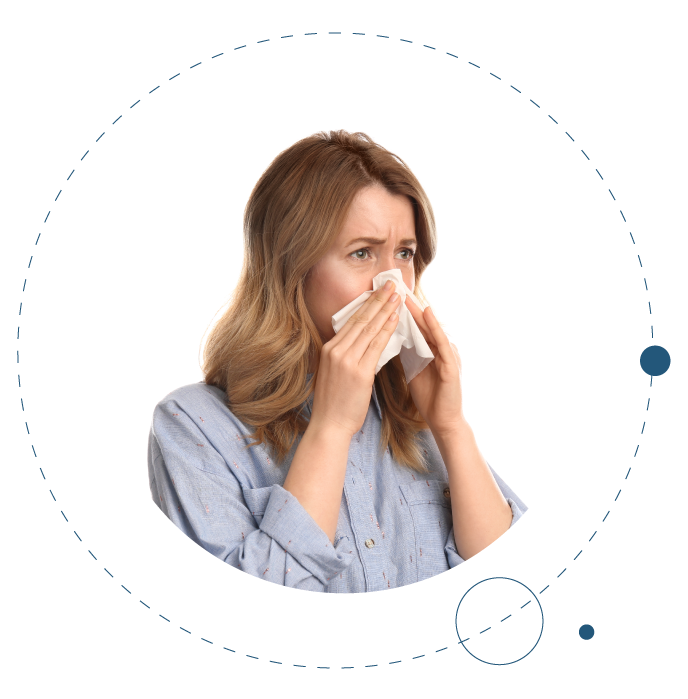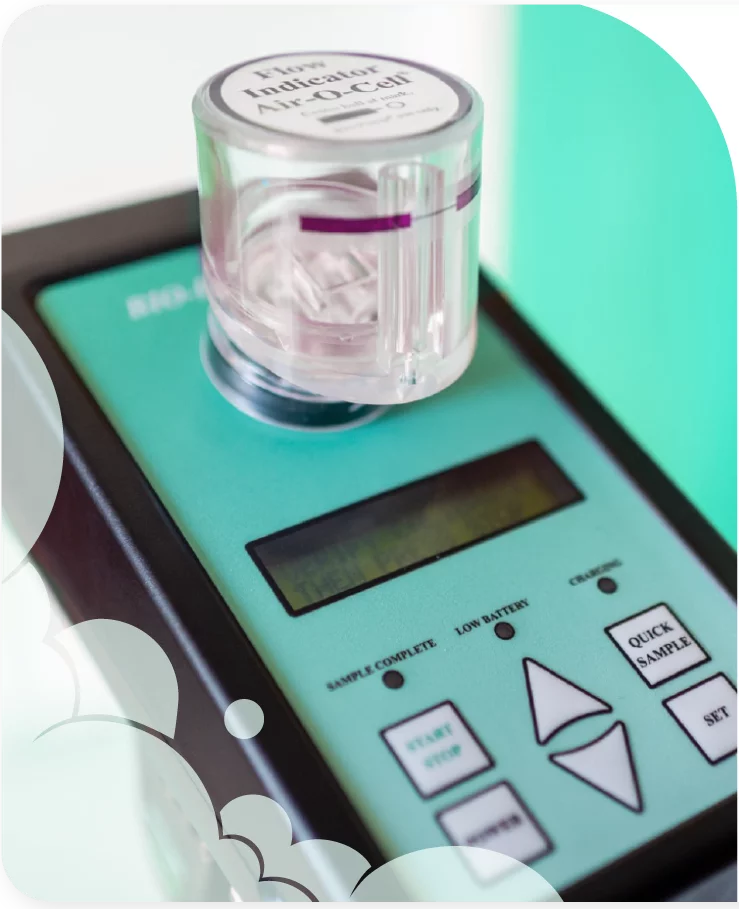Respiratory
Problems
Respiratory Problems
Mold spores are pretty much everywhere, and we breathe them every day. People with respiratory disease or weakened immune systems are at more risk of developing breathing and health problems. Some molds can trigger an allergic reaction or cause an infection in the lungs.
The symptoms can vary depending on what type of mold is in the lungs and what type of reaction they cause. Exposure to mold can cause a reaction called Allergic Bronchopulmonary Aspergillosis (ABPA). Symptoms of mold exposure are similar to asthma signs and include:
- Coughing
- Wheezing
- Shortness of breath
- Fever (rare)
- Worsening of asthma
- Symptoms
How Can Mold Trigger Respiratory Health Problems
Exposure to mold can cause allergic reactions and asthma symptoms in people who are allergic to mold. However, even without mold, dampness indoors causes asthma attacks and other upper and lower respiratory problems. Anyone—with or without allergies—may experience irritation of the eyes, skin, nose, throat and lungs when exposed to airborne mold particles.
Evident dampness or mold had consistent positive associations with multiple allergic and respiratory effects. Measured microbiologic agents in dust had limited suggestive associations, including both positive and negative associations for some agents. Thus, prevention and remediation of indoor dampness and mold are likely to reduce health risks, but current evidence does not support measuring specific indoor microbiologic factors to guide health-protective actions.

We are ETA: Licensed, Certified and Insured Air Quality Testing and Mold Inspection Company
Fungus Exposure Symptoms
Invasive aspergillosis occurs when an Aspergillus fungus grows in the lungs and causes symptoms such as:
- Fever
- Chest pain
- Cough
- Coughing up blood
- Shortness of breath
- Potentially life-threatening symptoms if it spreads past your lungs
Symptoms of non-Aspergillus molds infections tend to be similar.
Sinus Congestion, Sneezing & Coughing
Mold allergy can cause respiratory problems, coughing, itchy eyes, and other symptoms that make your immune system overreact when you breathe in mold spores. When inhaling airborne mold spores, the body recognizes them as foreign invaders and develops allergy-causing antibodies to fight them.
The same signs and symptoms that occur in other types of upper respiratory allergies can be presented as itchy eyes, nose, throat, sneezing, nasal congestion, and coughing.
Symptoms of breathing mold vary from person to person and range from mild to severe. Symptoms can be more noticeable when the weather is damp or when there is a high concentration of mold in outdoor or indoor spaces.
Environmental Testing Agency provides Mold Testing and Mold Inspection services in South Florida
Contact Us
Contact Us

Request
A Free Estimate


